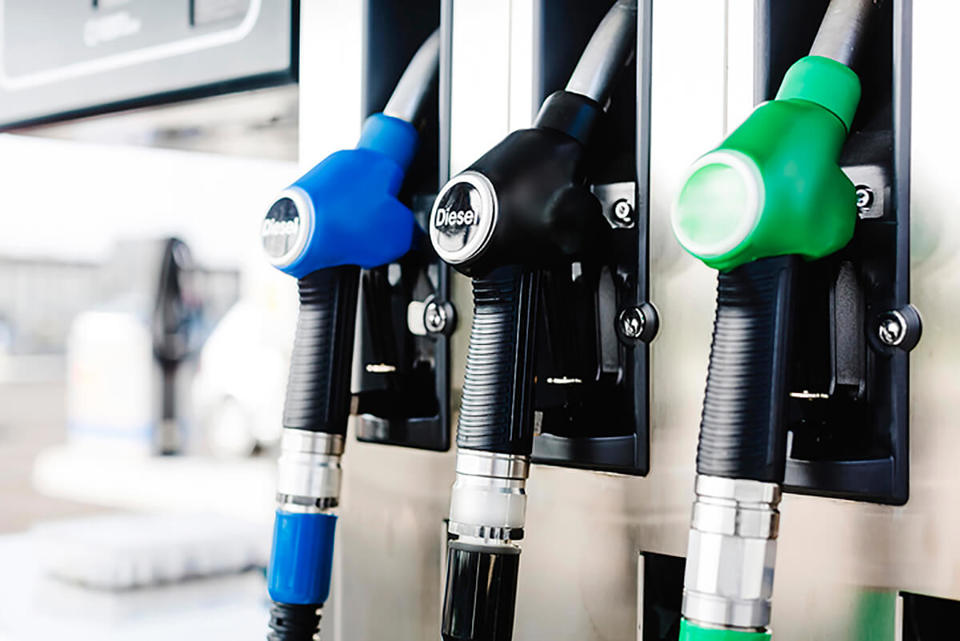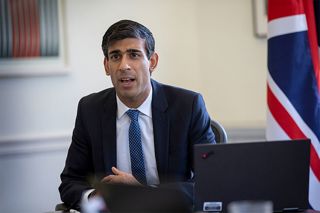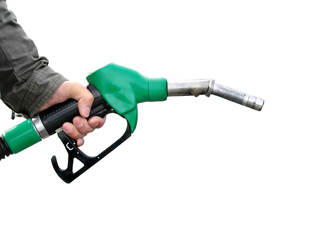The cost differential between diesel and petrol has grown over recent weeks, with diesel seeing pump prices increase twice as much as petrol during March.
New figures from the RAC show that the average price of diesel increased by just over 22p per litre in March, peaking at 179.9p on March 23.
This was three times the size of that recorded in May 2008, the previous worst month for diesel price rises, when the cost of a litre went up by around 8p per litre.
The average cost of a litre of unleaded petrol, meanwhile, went up by just over 11p per litre – the largest ever increase the RAC has recorded in a single month – hitting a new record-high price of 167.3p on March 22.
The previous biggest monthly increase was in October of last year when petrol prices rose by just over 7p per litre.
It now costs nearly £90 (£89.80) to fill a 55-litre family petrol car, £6.38 more than it did at the start of the month and £22 (£21.93) more than a year ago (a 32% increase).
The effect of the rise in diesel prices is even more pronounced with the cost of a tank up £12 (£12.13) in March, from £85.38 to £97.51 – around £15 more than it did at the start of January, and almost £28 (£27.84) more than a year ago (a 40% increase).
The increase in pump prices is as a result of rising wholesale fuel costs, themselves caused by a further hike in the cost of oil following the start of the Russian invasion of Ukraine.
A barrel cost $112.99 at the start of March before peaking at a 14-year high of $137.72 on March 8, two weeks after the war began.
While the price fell to $109.98 by the end of the month, rises earlier in the month had already pushed up wholesale fuel prices, causing drivers to pay even more to fill up.
RAC fuel spokesman Simon Williams said: “Over the 22 years we have been monitoring pump prices as part of our Fuel Watch initiative we’ve never witnessed such extreme rises in prices over such a short period.
“To describe the current situation facing drivers at the forecourt as ‘bleak’ is therefore something of an understatement.”
Drivers hoping to enjoy some respite from record pump prices from the Chancellor’s 5p fuel duty cut were left frustrated thanks, in part, to the fact that the cut applied to the wholesale cost of fuel and the oil price jumped by $6 a barrel on that day, leading to the cost that retailers pay to buy fuel going up.
The average petrol and diesel prices have so far fallen by 3.73p and 2.61p respectively since the Spring Statement.
Williams said: “Drivers might well be feeling aggrieved that the Chancellor’s historic fuel duty cut announced in the Spring Statement just two weeks ago has done nothing to protect them from price increases.
“A 5p cut in duty should, in theory, have led to a 6p cut in prices at the pumps as a result of the Government taking less VAT – but that is on the basis that wholesale prices stay still, which is hardly ever the case, and retailers passing on their reduced costs to driver fairly.
“The fact pump prices have fallen so little reflects the fact that the cost to retailers of buying fuel had been going up ahead of the Spring Statement.
“Had the Chancellor temporarily cut VAT rather than fuel duty on fuel, as we asked him to do, the impact on pump prices would have been immediate with drivers benefitting straight away.
“Cutting VAT would also have gone some way towards shielding drivers from future increases – something a cut in duty just can’t do.”
Fleet News has teamed up with Allstar to bring you the fuel prices locator, enabling you to compare fuel prices and find the cheapest petrol or diesel in your area.
Even one penny per litre can make all the difference when filling up your fleet vehicles, potentially saving your company thousands of pounds a year.
Average pence per litre and per gallon petrol and diesel fuel prices in the UK regions includes England, Scotland, Wales and Northern Ireland. To access the latest fuel prices, click here.
























Login to comment
Comments
No comments have been made yet.